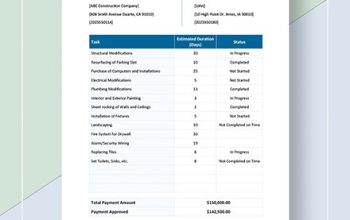No matter what you think, credit card applications are scary. Applying for a credit card to a person with bad credit will cause greater anxiety. Because many people are not 100% sure that they will be approved. Fortunately, registration of credit card with bad credit can relieve all tension and pressure. Because the approval process is much more tolerant than traditional credit cards.
But like anything else, bad credit cards also need attention. This does not mean that all cards are bad, but just because you have almost obtained the guaranteed approval does not mean that you will change jobs when you first offer. It should be done through shopping and asking questions. Questions to answer before signing the dotted line.
Aren’t you sure what kind of questions to ask? don’t worry. On the contrary, before you make a decision, please confirm the five most common things you need to ask any secondary credit card provider!
#1 – Are there any other expenses besides banquet expenses?
When your credit sweeps the floor, it’s hard to escape the banquet expenses. This is why there are many bad credit cards. Therefore, we cannot get rid of this situation, but we must confirm that no other fees have to be paid (monthly or annually).
For example, some credit cards require one-time management or project group fees. Others charge you a monthly maintenance fee, while others only charge you a fixed banquet fee. Once you sign on the dotted line, you are basically locked in this fee, so you should confirm whether you are checking the fees that should be paid. (It is generally found under the terms and conditions of the card you applied for.)
#2 – What is the minimum credit limit?
Most subprime credit card companies offer the lowest and highest credit limits based on current credit scores. On the other hand, some companies also limit the opening limit to a specific amount. If you are shopping around and want to buy many different cards, this is what you should pay attention to. Especially if you are looking for the maximum possible.
#3 – How long can I apply for credit line increase?
There are good reasons for the increase of credit limit. It expands your available credit limit, reduces your utilization rate, and improves your credit score. Because of this, the credit card you choose must have the opportunity to apply for a regular credit line increase.
As a general rule of thumb, a company that reviews your credit every six months is ideal. As long as you hold a credit card, without any review, the company that does not change your limit is not worth the trouble.
Note: Review of additional credit limit=more opportunities to improve credit score.
#4 – If you are eligible to apply for credit line increase, do you need to pay?
Sometimes raising your credit limit comes at a cost. Some bad credit card borrowers will be happy to review your credit to see if it is possible to raise the limit. Of course, if you are willing to pay for it.
In the face of this situation, your decision will ultimately be attributed to what the increase in credit limit can bring to you. If the amount is sufficient to reduce the utilization rate and burst the available credit, the cost of greatly improving the credit score may be low.
Although not all credit cards charge for the increase of credit limit, it is good to realize this, and many borrowers are still actively practicing it. The last thing you want to do is increase your limit, and you are scared of the cost of your next bill.
#5 – Is there any special offer on this card?
In the world of credit cards with bad credit, it is difficult to find credit cards with different benefits, but they do exist. Some credit cards can provide you with points or various cash rewards for purchase to help you earn some money to gain loyalty as a customer. Others can offer discounts on travel, food, car rental, etc.
This is not a huge deal breaker, but it will be worth studying than another card that offers some kind of discount.










